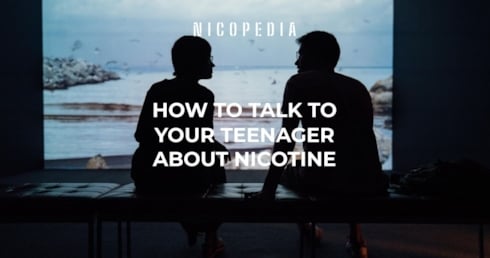Published 2023-11-29
How to Talk To Your Teenager About Nicotine
Being a parent to a teenager is not the easiest thing in the world. At times, you might even feel powerless. But there's a lot you can do to show that you're always there, that you're listening, and that you care. Adolescents care about what their parents say, even if it doesn't always seem that way, which means it's important to be clear about what matters. Dealing with a child that is using nicotine can be challenging. What should a parent say to their child that has been using nicotine? Read on for some of our advice!

How to Talk About Nicotine With Your Child: Five Pieces of Advice
1. Build a Close Relationship
A close relationship is not something that happens overnight, it is something that takes time to build. However, it is important to approach the relationship on the child's terms and build trust. Many parents feel that their teenagers shut them out of their lives, as if they are no longer needed. As a parent, you are just as important as to them when they are a teenager as you were when they were younger.
2. Concerned About Something? Communicate Your Worries
In order to get your child to listen to you properly, it's important that they understand you. Explain how you experience things, how it feels to be a parent and what you're worried about. This also means being clear and communicating boundaries so that the child is aware of them.
3. Discuss EVERY Topic
The foundation of a close and healthy relationship often lies in the habit of discussing various things - from how the school day went to your child's favourite interests. Talking about anything that shows you, as a parent, are interested is a step towards ensuring an open and trusting line of communication. This then makes a more natural path to talking about nicotine, vaping, or other sensitive topics.
4. Encourage Them to Share
It's important that your child understands that you're there no matter what happens – they need to feel that they can be honest without facing anger and criticism.
Even if your child shares something that may be difficult to hear as a parent, try to show appreciation for their willingness to share. This increases the chances that your child will share things in the future as well. Try to be calm and clear so that your child knows you care and keep the line of communication open going forward.
Even if your child shares something that may be difficult to hear as a parent, try to show appreciation for their willingness to share. This increases the chances that your child will share things in the future as well. Try to be calm and clear so that your child knows you care and keep the line of communication open going forward.
5. Get Personal
Show that you care about your child's thoughts by sharing your own experiences. You do not need to share too much detail, but opening the line of communication by sharing your own experiences is a way of showing your child that you understand them.
